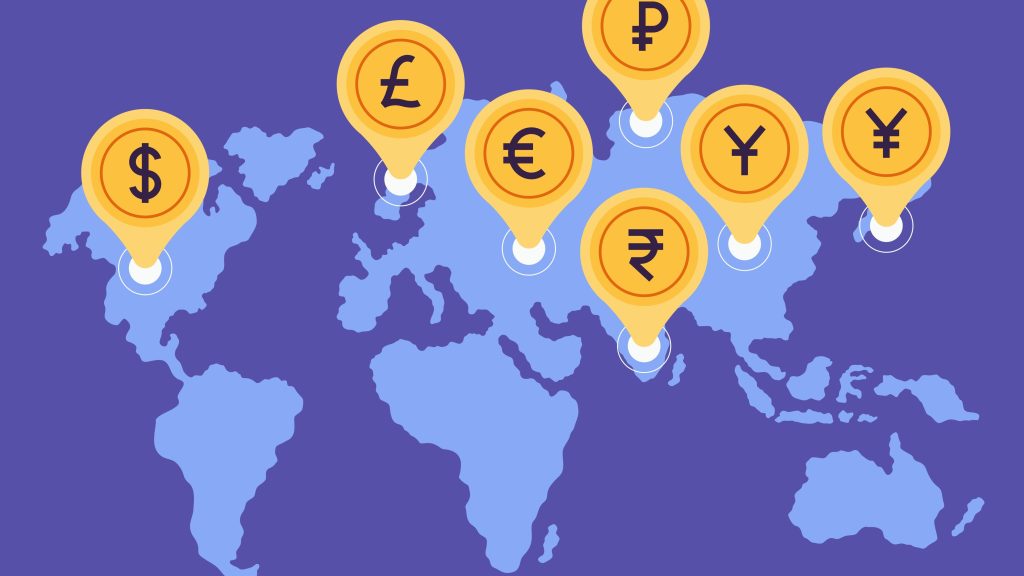International Corporate Finance forms the core of the modern global business landscape, enabling organisations to compete, innovate, and expand across borders. For professionals and students at Robert Kennedy College (RKC), mastering this subject is vital—not only for career advancement but also for understanding the interconnected dynamics that drive today’s economy. This blog examines the crucial importance and inherent challenges of International Corporate Finance, and how the MSc International Corporate Finance at RKC equips graduates with the skills, confidence, and vision to succeed globally.

Why International Corporate Finance Matters
At its core, International Corporate Finance involves managing a company’s finances across multiple countries, each with unique markets, currencies, regulations, and risks. It’s a discipline where strategy meets complexity—where investment decisions, asset management, and financing require not only technical expertise but a global mindset.
- Driving Growth: International finance allows companies to seize growth opportunities, expand into new territories, and diversify revenue sources. Whether through mergers, acquisitions, or strategic alliances, cross-border finance decisions influence a company’s future and market position.
- Risk Management: Operating internationally exposes companies to currency fluctuations, geopolitical events, regulatory changes, and cultural differences. Effective corporate finance helps mitigate these risks, ensuring stable funding and safeguarding profits.
- Crisis Resilience: The recent global crises—pandemics, trade wars, inflation surges—have highlighted the importance of strong financial strategies and international agility. Businesses with expertise in global finance were better positioned to adapt, survive, and thrive.
Key Challenges Addressed by the MSc International Corporate Finance at RKC
The MSc International Corporate Finance at Robert Kennedy College not only outlines global finance obstacles but also offers practical methods to overcome them through specialised training and applied learning.
1. Managing Complex Financial Decisions in Diverse Markets
The programme equips students with the skills to analyse advanced financial data and make critical investment and financing decisions across both developed and emerging markets. The curriculum emphasises global corporate financial strategy, mergers and acquisitions, asset valuation, and restructuring—ensuring graduates have the analytical ability to manage financial complexity on a global scale.
2. Global Risk Identification and Mitigation

Students gain expertise in recognising, measuring, and managing various risks, including currency, market, credit, and operational risks. Wide coverage of hedging methods, portfolio oversight, and financial instruments enables graduates to confidently protect multinational operations from global volatility.
3. Navigating Governance and Ethical Dilemmas
The MSc challenges students to analyse international corporate governance developments following global financial crises, review modern capital structure theory, and understand complex regulatory and reporting environments.
4. Mastery of Global Capital Markets and Instruments
Graduates understand the structure, function, and risks of international capital markets, derivatives, and innovative financial products. Real case studies enhance their abilities to operate in high-stakes environments—equipping students not just to understand, but to lead in capital raising and market participation for global enterprises.
5. Developing Leadership and Cross-Cultural Competence
With a learning community spanning Europe, Asia, Africa, and beyond, the program builds more than technical skills. It fosters intercultural collaboration, negotiation strengths, and the leadership qualities necessary to integrate and manage global teams, especially in cross-border business settings and multinational environments.
How the MSc International Corporate Finance at RKC Prepares You
Amid these challenges, RKC’s MSc in International Corporate Finance stands out as an effective solution for ambitious students and professionals. The programme combines rigorous academic study with real-world problem-solving, delivered flexibly and interactively to a global cohort.

1. Comprehensive Curriculum with Global Relevance
The MSc programme encompasses all aspects of international corporate finance: foreign exchange risk, global capital markets, financial instruments, investment appraisal, global tax strategy, and cross-border M&A. Students examine real case studies from multinational corporations, gaining practical experience with the tools and frameworks employed by industry leaders.
2. Faculty Expertise and Peer Learning
RKC’s faculty comprises esteemed academics and industry practitioners with decades of global financial experience. Classes benefit from diverse perspectives — students hail from across Europe, Asia, Africa, and the Americas — fostering a vibrant environment for sharing insights and debating strategies. The international community reflects real-world finance teams, cultivating intercultural competence alongside technical expertise.
3. Flexible, Student-Centred Delivery
RKC’s online platform is well-known for its flexibility—students can learn at their own pace, manage study around busy schedules, and participate from anywhere in the world. The MSc programme allows participants to personalise their learning journey, apply lessons directly to their work, and establish routines that suit their individual focus and energy levels—using the same successful habits of sleep and wellbeing promoted in other RKC programmes.
4. Cutting-Edge Technology and Resources
RKC incorporates digital tools—from worldwide financial databases to simulation programmes—helping students excel in analysis and forecasting needed in international finance. Students use wearables and productivity apps to monitor their progress, access webinars and virtual residencies, and work together in real time, no matter their location.
5. Preparation for Leadership and International Careers
Graduates of the MSc International Corporate Finance are prepared for senior roles in multinational corporations, financial institutions, consulting, and entrepreneurship. The degree demonstrates not only expertise in technical finance but also the agility, cross-cultural understanding, and ethical awareness required to lead global teams.
Real-Life Impact: RKC Alumni Success Stories
RKC students consistently report significant professional growth after completing the MSc International Corporate Finance. Alumni have initiated successful international ventures, led cross-border M&A deals, and guided multinational firms through turbulent markets. They attribute the programme’s flexibility, peer support, and learner-centred approach to building confidence and maintaining a healthy work-life-study balance alongside their demanding roles.
Linking Academic Excellence with Global Opportunity
The advantages of studying International Corporate Finance at RKC go beyond technical abilities. Students join a lively, supportive community that values individual pace, wellbeing, and continuous learning. As global economies become more interconnected, graduates gain a distinct edge: the skill to handle uncertainty, foster innovation, and uphold responsible business practices worldwide.

Your Gateway to International Success
Choosing to study International Corporate Finance at Robert Kennedy College is an investment not just in a degree, but in your future as a global finance professional. The world needs leaders who understand complexity, embrace diversity, and manage risk with resilience and integrity. RKC’s MSc delivers the knowledge, network, and adaptability you need—preparing you to succeed and thrive, whatever challenges lie ahead.
Enrol today and become part of a community of changemakers—combining financial skills with an international outlook and beginning a career without boundaries.
Ready to take your next step? Explore the 100% Online Degree Programmes at Robert Kennedy College. Unleash your ambition for growth, innovation, and worldwide business success.





